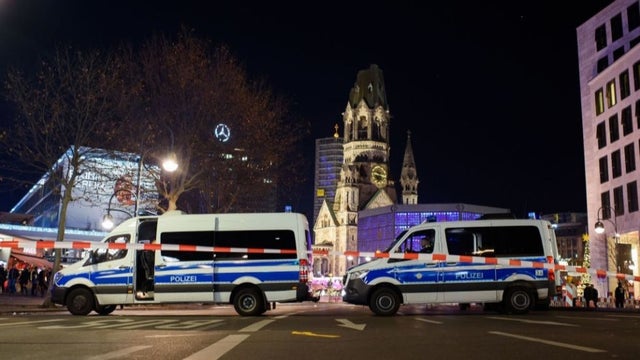Across Europe there were fears of ISIS attacks over the Christmas holiday, particularly targeting Christmas markets. A Berlin market was evacuated on Dec. 21. In France, a senator warned of concerns, and Austrian police foiled a planned attack. ISIS terrorists have been captured in Denmark, and a massive attack in Niger claimed by an ISIS affiliate killed 71 soldiers. That attack has led to emergency meetings across several nations in Africa’s Sahel region and alarmed France, which has soldiers in the area.
ISIS’s winter offensive is in full swing. The Syrian regime has alleged the terrorist group used drones against oil facilities in Homs. About 800 kilometers east of Homs, across the Syrian and Iraqi desert, ISIS members attacked a village near Makhmour and had a firefight with Kurdish Peshmerga. The number of ISIS attacks across Iraq has increased, and ISIS’s presence appears to be growing in Diyala province, where both the Iraqi army and Kurdish forces have deployed heavy weapons and aircraft to confront the threat.
Two years after ISIS lost control of major cities such as Mosul in Iraq and Raqqa in Syria, and two months after its leader, Abu Bakr al-Baghdadi, was killed in a U.S. raid, the group is able to plan or stage attacks across several continents. The head of the U.K.’s military said ISIS definitely is not defeated and the world needs to be on guard.
The nature of the ISIS threat is radically different today than it was years ago. After it was defeated in its last bastion in Baghouz in early 2019, there were concerns it would melt into the Syrian and Iraqi desert, waiting to return if a vacuum in power emerged. There were also concerns that the thousands of ISIS members held by the U.S.-backed Syrian Democratic Forces could be a potential threat if they escaped. The U.S. troop withdrawal from part of northern Syria increased those concerns, but the anti-ISIS Coalition has made clear that ISIS detainees are secure. When I went to Iraq in September, we were able to observe several ISIS members living in a cave near Qarachokh mountain, west of the Kurdistan region’s Erbil, but the combined efforts of the Coalition, the Kurds and Iraqi security forces keep them in check.
This is why the nature of the threat has changed. Iraq does not lack security forces; it has more than 100,000 members of the Popular Mobilization Units, a group mostly Shi’ite paramilitaries, and it has large numbers of soldiers and Interior Ministry troops, as well as elite counter-terrorism forces trained by the U.S. and Coalition partners. Iraqi commandos raided a home of an ISIS member, for example. The Coalition puts out near-daily statements about successful raids and training.
The problem is more complex. ISIS is decentralized and it has a presence in numerous areas it formally occupied in Iraq and Syria. The sheer number of raids against it show that even if ISIS is on the back foot, hiding in caves and rural areas, it is still there. Far away from the ISIS heartland, the group’s affiliates also are active.The Trump administration may send a new special envoy to the Sahel region, Foreign Policy reported on Dec. 20. The new National Defense Authorization Act details increasing U.S. interest in Africa, not just to confront ISIS or terror groups such as Al-Shabaab, but also Russian and Chinese influence. This has been a long time coming since U.S. special forces were killed in an October ambush in Niger in 2017. The increased U.S. attention will please French President Emmanuel Macron, who spent a pre-Christmas dinner with French troops in Abidjan in Ivory Coast. French forces and local allies killed 25 “jihadists” in the last month, according to France 24.
To confront the disparate ISIS threats, from Niger to the Philippines, will require closer collaboration by counter-terrorism forces. The problem is that areas where ISIS was operating — whether in Iraq, Syria or Libya — continue to be unsettled today. Rivalries between other countries, such as Russia or Turkey, complicate the U.S. focus on ISIS and can mean the threat of the terror group takes second place to larger international struggles.
But we only have to take a step back to remember how life was before the rise of ISIS, before attacks on Christmas markets in Europe or the ISIS-led genocide in northern Iraq, to remember how essential it is to keep the organization from rising again anywhere.

